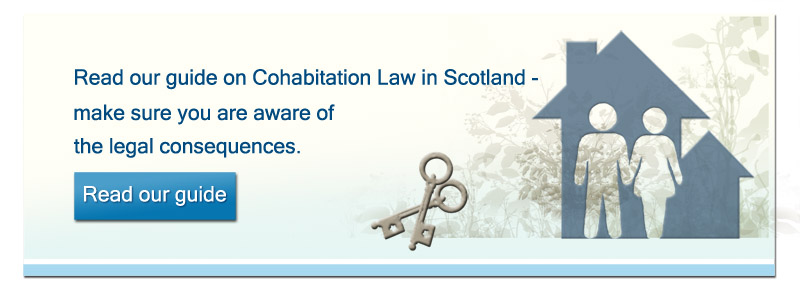
We have published a number of blog articles dealing with the legal consequences of a separation, divorce and child contact matters but you may want to know 'how do I get married in Scotland'
In Scotland, prior to the marriage ceremony, both parties must submit a Marriage Notice form to the registrar of the district where the marriage is to take place. Once the Registrar is satisfied that there are no legal impediments to the marriage (i.e. if someone has been married previously, that a Divorce Decree is available). The Marriage Schedule is then prepared and signed at the end of the ceremony.
Marrying abroad
For people who choose to marry abroad it is essential that post ceremony, additional paperwork is completed to ensure the marriage is legally recognised as valid in Scotland.
Before arranging a marriage abroad, we would recommend that you contact the Embassy based within the UK to get full details on how to ensure the marriage is valid in your chosen country.
Another tip is to contact your local Registrar and request a form that confirms that you are free to marry.
Common law marriage
There is a common misconception that once a couple has lived together for ten years, legally they have a ?common law marriage. This has never been the case in Scotland.
Cohabitation
In 2006, the law changed and new rights were given to cohabiting couples. These new rules apply whether a couple's relationship breaks down or if a partner dies. However, cohabiting couples do not have the same legal rights as married couples or civil partners.
Legal responsibilities and rights of marriage
Marriage brings a set of legal rights and responsibilities which include:-
- legal obligation to financially support your spouse.
- furniture and other household items bought for a matrimonial home or bought during the marriage is deemed to belong equally to both parties (this can also relate to savings, pensions, cars etc).
- both married partners have the right to live in the matrimonial home regardless of who bought it or whose name is on the tenancy.
- if a spouse dies, then the surviving spouse has legal rights to the estate.
Our family team has extensive experience in all areas of family law including: divorce, separation, cohabitation, child contact, and marriage, if you'd like to speak to one of the team, please get in touch.

